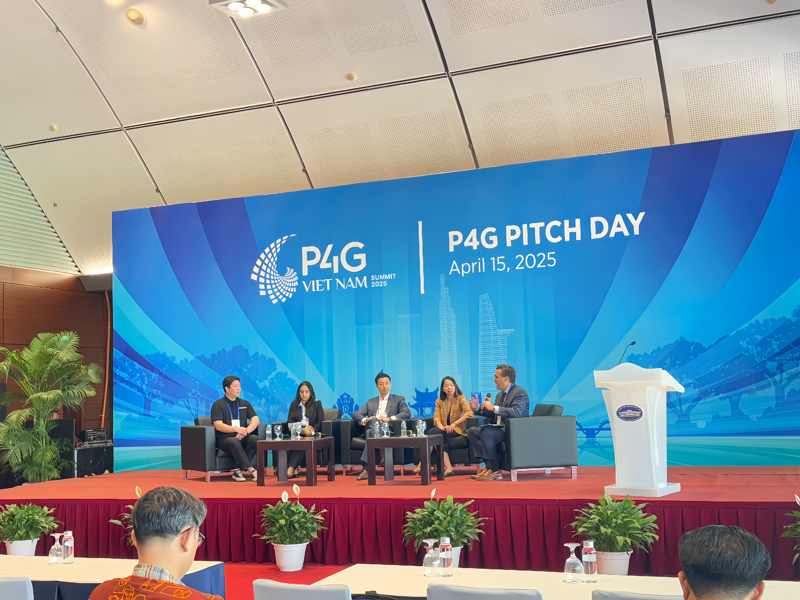At a discussion session titled “Unlocking investment for early stage startups in emerging economies,” held on the afternoon of April 15 within the framework of the 4th Partnership for Green Growth and the Global Goals 2030 Summit in 2025 (the P4G Vietnam Summit 2025) in Hanoi, experts emphasized that Vietnam still needs to further enhance its comprehensive support mechanisms for the startup ecosystem in general, and for startups in particular, in the coming time.
According to data from the Ministry of Science and Technology (MoST), by the end of 2024, Vietnam’s innovative startup ecosystem had recorded over 4,000 startups, including two tech unicorns and 11 companies valued at over $100 million.
Specifically, Vietnam has climbed two places in the global startup ecosystem index 2024, moving from 58th to 56th
Ms. Ngo Thuy Ngoc Tu, Co-founder of Touchstone Partners, expressed that Vietnam’s startup and innovation ecosystem holds significant potential, particularly due to its resilience, pragmatic thinking, creativity, and flexibility.
In addition, Vietnam is demonstrating remarkable dynamism in the technology sector, with advanced laboratories, a growing base of intellectual property (IP), and a large volume of valuable research outcomes.
“These factors prove that Vietnam not only possesses innovative ideas but also has the infrastructure and resources to develop breakthrough technologies in support of startup innovation,” Ms. Tu said.
Similarly, Mr. Min Alexander, Co-founder and CEO of RE:HARVEST (South Korea), expressed strong impressions of Vietnam’s efforts and orientation toward sustainable development.
In which, many universities and research institutes in Vietnam have not only actively established startup support centers but also proactively implemented experimental models and proof of concept (POC) projects.
He also noted that Vietnam is making stronger strides than South Korea in building an environmentally friendly startup ecosystem, demonstrated through mechanisms to support innovative startups towards sustainable development.
“These are solid foundations for building a sustainable innovation ecosystem. If Vietnam continues to maintain and develop along its current trajectory, I believe the country will soon establish a startup ecosystem strong and flexible enough to adapt and sustain long-term innovation,” Mr. Alexander emphasized.
However, Mr. Alexander also pointed out that Vietnam still lacks national-scale startup support programs, as well as limited participation from public investment funds. Moreover, the growth rate of early-stage startups remains relatively slow.
In light of this reality, Mr. Alexander proposed that Vietnam should further accelerate the development of a synchronized policy system to create a more favorable environment for startups. This should include not only systematic support programs but also the establishment of state-backed venture capital funds to lead and mobilize private capital.
“With the right and timely support, I believe Vietnam can rise to become a leading sustainable and dynamic innovation startup hub in the region,” Mr. Min Alexander affirmed.
Adding to the solutions for the future, Ms. Tu suggested that one of Vietnam’s strategic priorities should be to strongly promote the transfer and commercialization of intellectual property (IP) and technologies currently in the testing phase.
“If Vietnam can do this, the country will not only increase the value of its innovation initiatives but also rise to become a vital link in the global technology value chain,” she affirmed.









 Google translate
Google translate